Commercial kitchen regulations are, generally speaking, the basic requirements for maintaining a commercial kitchen. They cover a range of topics, all of which contribute to the safe operation and cleaning of your kitchen.
Here, we’ve compiled all the information you need regarding UK commercial kitchen regulations so you can ensure the right practices are put in place in your kitchen.
Food Hygiene
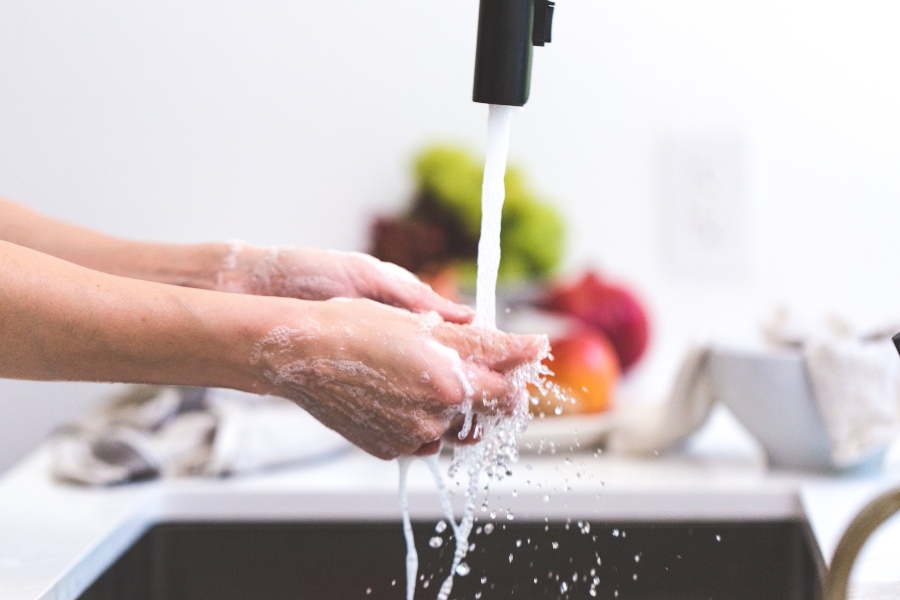
Food hygiene rules are an important part of following commercial kitchen regulations. In order to ensure your kitchen team is operating in a way that is both safe and hygienic, you will need to make these rules clear, and provide training to get everyone on the same page.
There are three core areas of food hygiene in a commercial kitchen:
- Personal hygiene – this includes proper hand washing, sickness rules and clothing requirements like hair nets.
- Food storage – this covers the ways that raw, cooked, hot and cold food are stored.
- Transporting food – this is particularly important for food delivery kitchens.
Food hygiene is of paramount importance and there are many specific rules. You can find out more about the ins and outs of the rules in our Food Hygiene Guide.
Food Waste
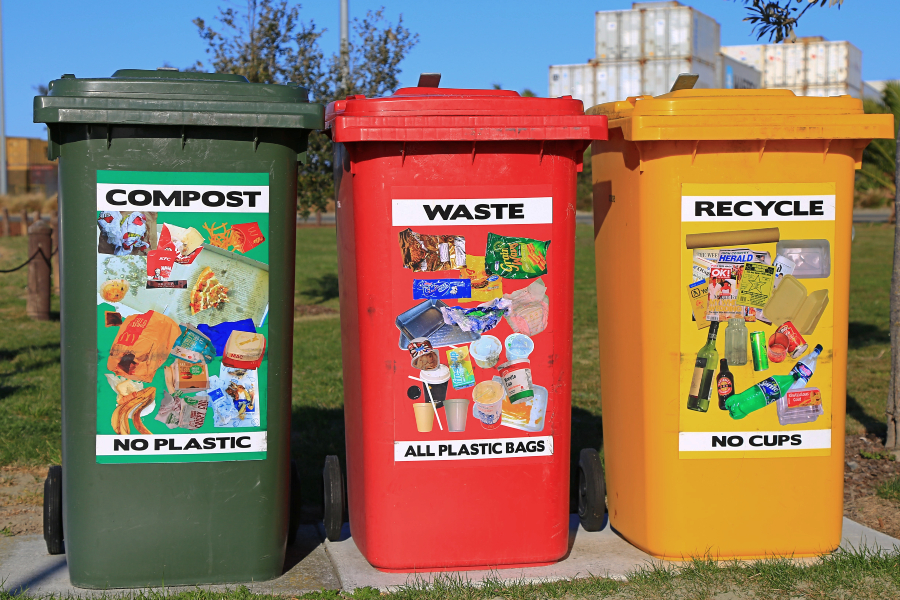
The proper disposal and storage of food waste is an important part of the food safety side of commercial kitchen regulations. It is a fundamental concern and should be built into the layout of your kitchen and its daily running.
In your commercial kitchen, you need to have designated areas for food waste disposal, which should be near to preparation and cleaning sections. This way, you are not traveling across cooking spaces with food waste, which could create cross-contamination.
Food bins need to be kept closed, not left open, and be emptied regularly and immediately when full. This prevents the buildup of bacteria and ensures your kitchen is a safe place to produce food.
You can find out more about food waste regulations, the correct disposal of grease and waste bin options in our Starter Guide: Food Safety, Storage & Waste.
Kitchen Ventilation
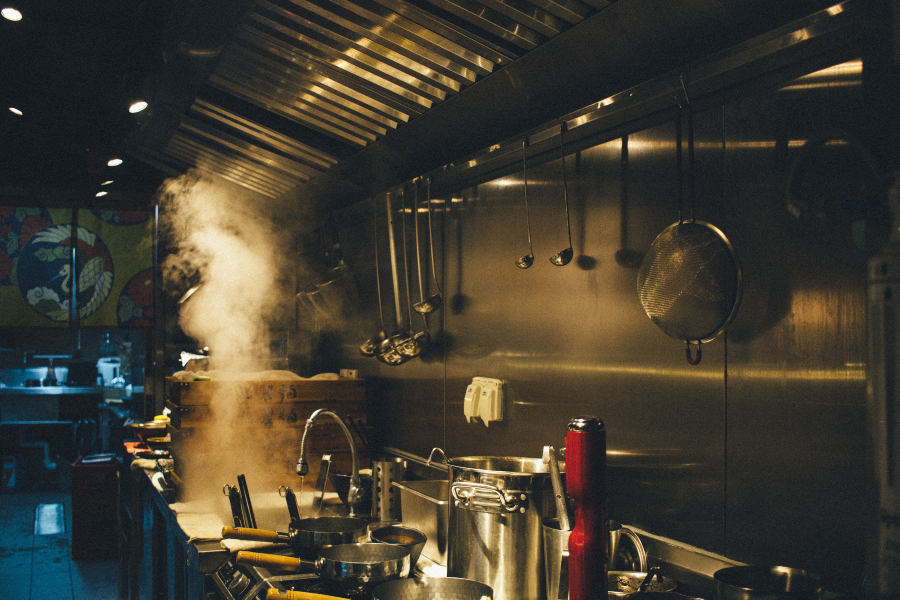
In order to comply with commercial kitchen regulations, your kitchen needs to have proper ventilation and extraction. Industrial grade hobs and cooking units, particularly if you prepare fried foods, will create plenty of steam and smoke that needs to be removed from your kitchen effectively. This is both to protect your staff and help stop accidents that could damage your kitchen.
Your commercial kitchen needs to have hooded fans and vents above all cooking units. If you license a commercial kitchen with Foodstars, your unit will already have the necessary kitchen ventilation in place. All you need to do is maintain their cleanliness, to avoid grease buildup.
Fire Safety
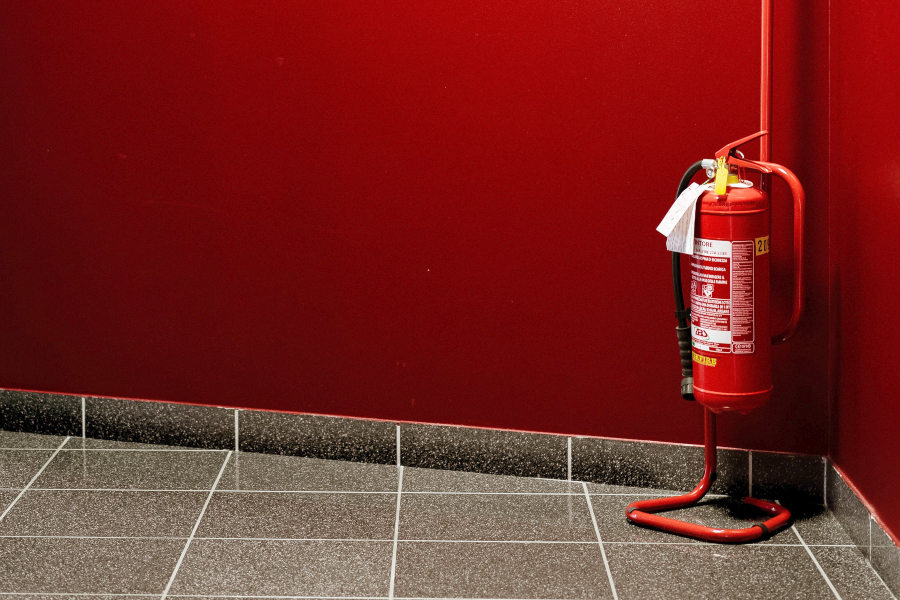
Alongside kitchen ventilation, fire safety equipment and infrastructure is important in case of accidents in your commercial kitchen.
Proper fire safety should include:
- Clear fire exits and safety points
- Fire extinguishers and blankets
- Fire alarms – including carbon monoxide detectors
- Sprinklers
Infrastructure means having a fire-rated system, which can include fire panels, fire resistance tested walls and other partitions that, in case of fire, help to contain it.
If you use a Foodstars commercial kitchen, they have fire-rated infrastructure and clear safety systems already in place.
Equipment Maintenance

For health and safety, and to make sure your kitchen functions at peak performance, you need to be carrying out regular equipment maintenance. This includes cleaning equipment and the areas under and around them thoroughly.
If you notice fraying wires or a piece of equipment that has been damaged or isn’t functioning properly, you need to stop using it immediately and get it checked – and then either repair or replace it.
You will also need to ensure all your equipment is regularly safety checked – more about this below.
Utilities Regulations
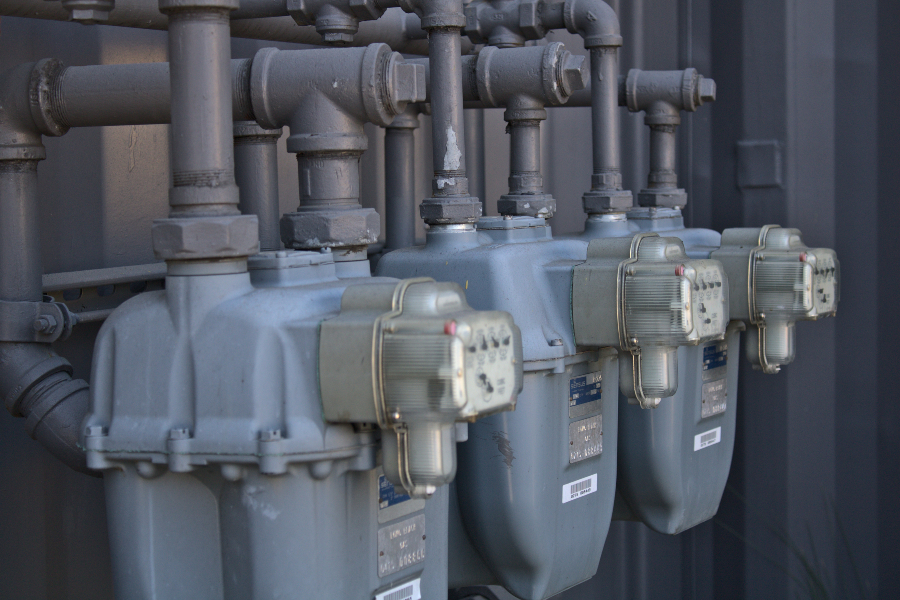
If you are setting up a rental kitchen, you will likely have to source providers for yourself. When licensing a kitchen with Foodstars, your gas, electricity and water suppliers, like your waste management and disposal, will already be arranged. This is important as it means our users can move in and get going straight away in their new kitchen.
Safety Reports & Certificates
If you don’t own your commercial kitchen but are licensing it, you can request access to the utilities reports and certificates. This enables you to ensure everything is being maintained as it should.
Some of the safety reports and certifications you may want to request include:
- Boiler safety inspection report
- Electrical safety certificate – conforming to UK national standard: BS 7671
- Commercial kitchen gas safety CP42 certificates
Water Regulations
In commercial kitchens, you need to be aware of the Water Regulations Advisory Scheme (WRAS). What this boils down to is making sure all of the water in your commercial kitchen is going where it is supposed to. With the waste water pipes from dishwashers and sinks running regularly, you want to make sure any drinking water isn’t being contaminated. This can happen if, for some reason, the backflow of water causes dirty water to flow into the main supply.
If you bring your own equipment into your commercial kitchen, it will have to be WRAS compliant, which you can check via a Work Complete Certificate; it is about safety after all and is of prime importance to the business.
With licensed units like Foodstars, you will likely have equipment already installed which will be WRAS approved. If you bring any of your own equipment, you will be responsible for making sure it is WRAS compliant.
Gas Safety
Foodstars commercial kitchens are fitted with a Natural Gas & Interlock System. This is sometimes known as a gas safety system and is used to ensure gas passes safely into your appliances. It also acts as a failsafe for gas in your kitchen, reducing the risk of accidents from explosions and carbon monoxide leaks.
In commercial kitchens, especially where lots of burners, ovens and other appliances are being used, you need to have a gas safety system in place. If you are licensing a space that doesn’t have one, you should look into installing one yourself or asking the site managers to have one fitted as a matter of importance. Never take the risk, especially with gas.
Three Phase Electricity
Three phase suppliers allow for the total electrical load to be distributed safely and efficiently. Most homes are fitted with one phase electricity and this has been the case since World War II. In commercial kitchens, and in most homes, there is a greater need for diverse power. We aren’t just powering small fridges, we might be powering a large number of appliances, tools and equipment, all of which require different amounts of electric power.
Three phase electricity does the work of supplying the right amount of power to anything linked to the system, as needed. In commercial kitchens, it means that your hand whisk gets a relatively low amount of power, while your industrial fridge gets a much higher portion.
If your commercial kitchen comes with supplier fridges, freezers, etc, then it is likely to be fitted with three phase commando plugs, which are industrial grade sockets and plugs ‘designed to safely transfer large amounts of power’. To ensure your kitchen operates efficiently, make sure it is fitted with these plugs.
Saving Energy
You can save energy and be economical in your kitchen by using the right power suppliers and by making sure you are using commercial grade systems. For example, an industrial boiler, as used in Foodstars kitchens, saves time and money by getting hot water ready on the scale needed in a working kitchen. Smaller boilers, like those found in a flat or house, wouldn’t be up to the task of supplying large quantities of hot water, certainly not in an efficient way, hence the need for industrial boilers.
Before you move into a kitchen, whether a licensed commercial kitchen or your own space, make sure there is an industrial boiler that fits your needs, or the capability for you to be able to install your own.
Choosing Suppliers
Most commercial kitchens come with utilities suppliers in place. Your costs for utilities will then be included in your lease agreement or the rental price. If you want to be able to choose your own utilities supplier, you will need to either:
- Rent a kitchen independently, which will mean setting up your own gas, water and electricity and so delay when you can get started.
- Choose a commercial kitchen supplier based on the utility providers they work with.
If choosing a green utilities provider is important to you, you can make a request to your site management team. Switching might not be as quick and easy as it would be with your home providers, but it is possible.
Safety Hazards & Solutions
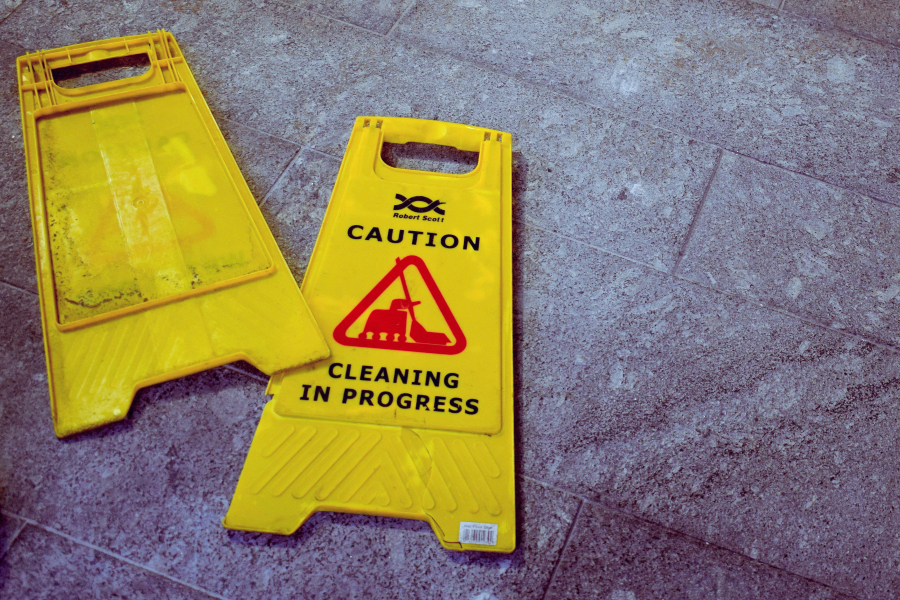
In any commercial kitchen, there are some obvious potential hazards, such as hot pans, spilled liquids and high traffic during busy periods. But with careful planning, you can ensure most of these dangers have a low chance of causing an issue.
In order to adhere to commercial kitchen regulations, you need to be aware of the potential hazards in your kitchen and have solutions installed.
Use Non-Slip Flooring
If you are renting a commercial kitchen, you will want to make sure it is fitted with non-slip flooring. Mats can be added if you feel you need extra grip, which can be particularly useful in the wash area where water splashes are more commonplace. Any areas where there is a danger of liquids spilling should have floor signs readily available so they can be placed before, during and shortly after clean-up – until the floor is completely dry.
Have Hygienic walls
Hygienic walls and hygienic floor-skirting, such as those in Foodstars commercial kitchens, are important for maintaining cleanliness. Having surfaces you can wipe clean and that are non-absorbent, such as stainless steel, throughout your kitchen will mean you can fully refresh them, in line with health and safety standards.
Avoid Blockages
You must avoid any blockages, especially around exits, as any kind of obstruction is both illegal and highly dangerous. This means that goods deliveries, equipment not in use and waste should all be moved to the correct assigned place immediately.
There are numerous commercial kitchen regulations to be aware of, and they are all important
Following these guidelines for commercial kitchen regulations will help you create and maintain a safe, hygienic and efficient kitchen for your food business.
More commercial kitchen guides: